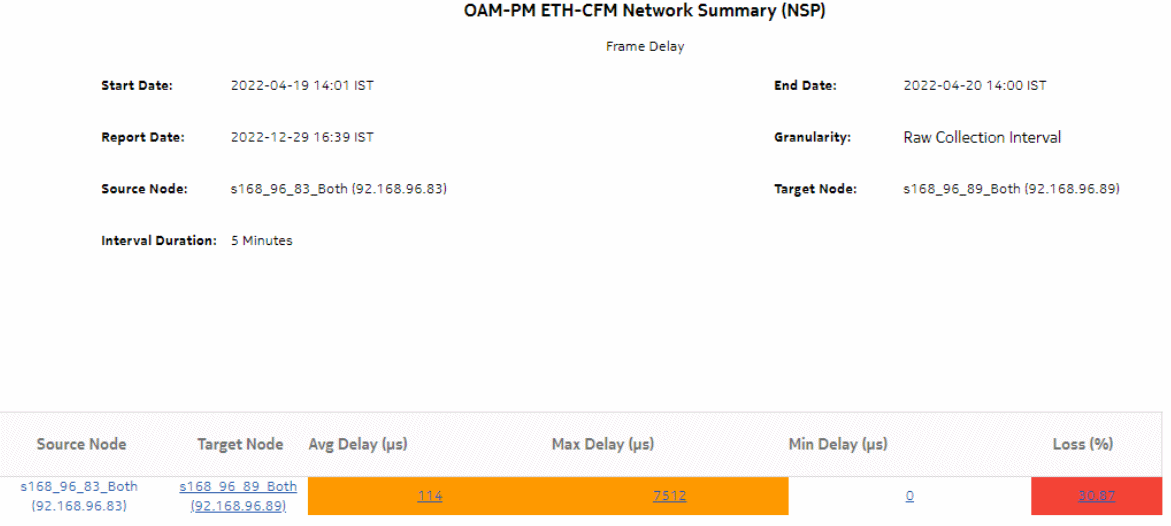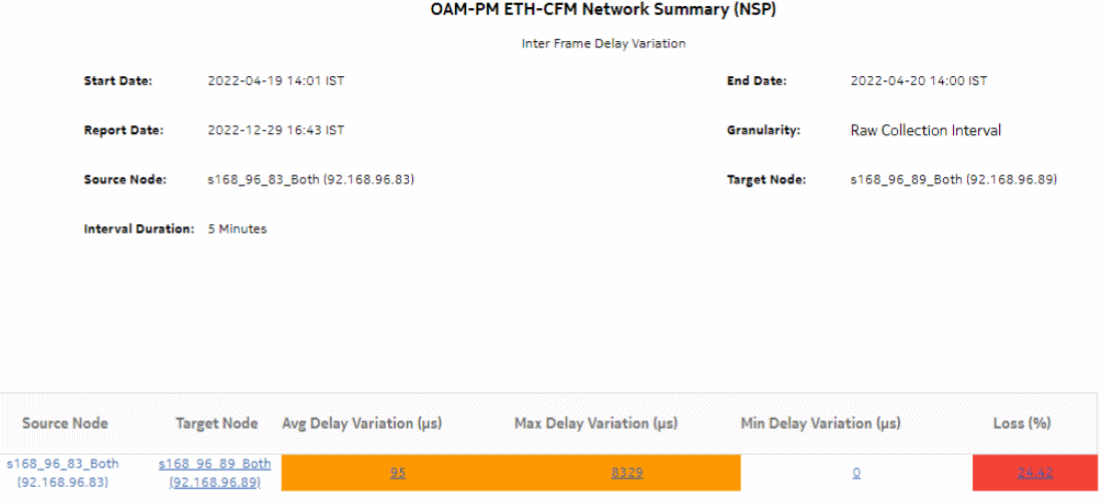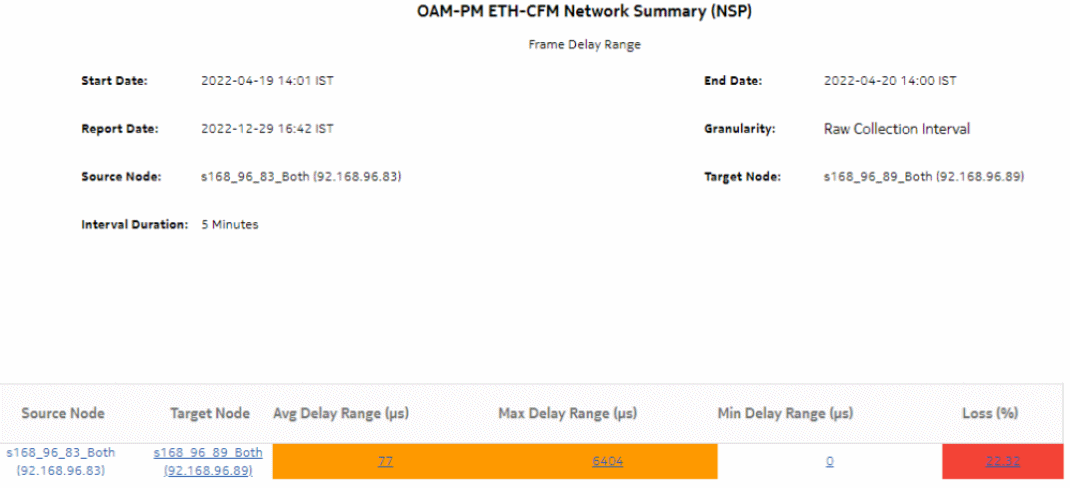OAM-PM Network Summary (NSP) report
Overview
The OAM-PM Network Summary (NSP) report differs from the OAM-PM Network Summary report by including OAM data for NEs managed by the NFM-P and MDM (model-driven Nokia NEs). The report shows an aggregated view of performance monitoring tests for Ethernet and IP, grouped by source and target NE.
The report includes the following session types:
Use cases
QoS analysis—Identify potential service impacting issues based on thresholds for latency, jitter and packet loss between specific NEs.
Prerequisites
The following need to be performed in the NSP and NFM-P for the report to be created:
-
a DMM session must be defined with accounting enabled in both MDM-managed and NFM-P NEs
-
a TWAMP-Light session must be defined with accounting enabled in both MDM-managed and NFM-P NEs
-
You must enable aggregation using NSP. For more information, see the Telemetry information on the Network Developer Portal and the NSP Data Collection and Analysis Guide.
Report inputs
The following table shows the report inputs.
Table 17-15: OAM-PM Network Summary (NSP) report inputs
Report characteristics
The following table lists the principal report characteristics.


